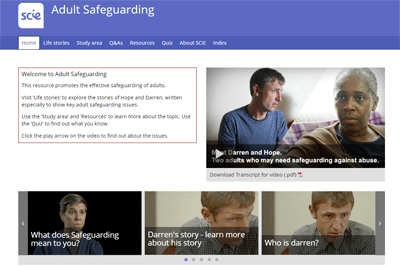Safeguarding Adults Reviews (SARs) are a statutory requirement for Safeguarding Adults Boards (SABs). Safeguarding adult practice can be improved by identifying what is helping and what is hindering safeguarding work, in order to tackle barriers to good practice and protect adults from harm. SARs need to be of good quality and need to be able to be shared to maximise the value of their learning.
SARs in Rapid Time training
Many Safeguarding Adult Reviews can take several months to complete. SARs in Rapid Time (SARiRT) model speeds up the process. Learn how to use the model in this modular training programme, attend sessions as needed. Seven sessions ran in Autumn 2023 with a further seven sessions to take place in Spring 2024

SAR Quality Markers
Support to the sector to achieve high-quality learning through Safeguarding Adult Reviews (SARs).

SARs In Rapid Time
Discusses the need for a rapid review process to enable system learning that is identified and shared beyond the location of the incident.

SARs and the Care Act
This resource aims to help Safeguarding Adults Boards to think about how they fulfil their responsibilities.

Learning from Whorlton Hall SAR
A webinar exploring the learning from the Whorlton Hall Safeguarding Adult Review.

Fabricated and Induced Illness
A webinar that aims to enable practitioners and managers to be better informed about this contentious area. Recorded 27 February 2023.

Safeguarding Adults Reviews library
The Safeguarding Adults Review (SAR) library contains reports largely dating from April 2019 which can be accessed via the website that is co-ordinated by the National Network for Chairs of Adult Safeguarding Boards.

Consultancy support
Expert support from SCIE on conducting statutory reviews, learning reviews and audits to improve safeguarding practice.

Safeguarding adults: CPD-accredited online course
Explore what safeguarding adults means and how to manage it effectively.
